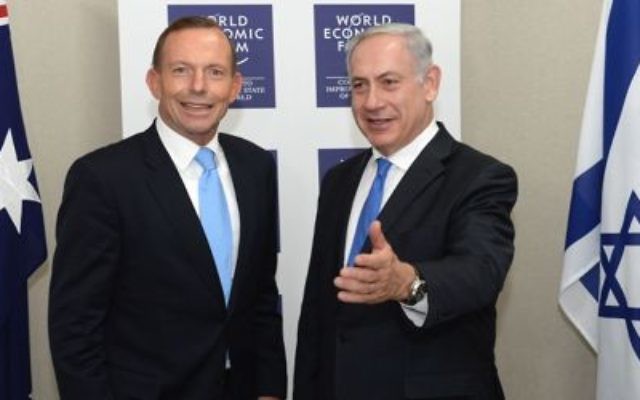Israel lauds Australia’s East Jerusalem stance
The Australian government’s insistence that it would not describe East Jerusalem as “occupied” thrust Australia to centrestage in Sunday’s meeting of the Israeli cabinet and received a ringing endorsement from Israel’s leaders.
Last Thursday, Attorney-General George Brandis had told a Senate Estimates hearing: “The description of areas which are the subject of negotiations in the course of the peace process by reference to historical events is unhelpful.
“The description of East Jerusalem as ‘Occupied East Jerusalem’ is a term freighted with pejorative implications, which is neither appropriate nor useful.
“It should not and will not be the practice of the Australian government to describe areas of negotiations in such judgmental language.”
The statement was warmly welcomed by Israeli Prime Minister Benjamin Netanyahu. Addressing ministers, on Sunday he said: “Over the weekend we heard an interesting declaration from the Australian government of a kind that we do not always hear. It simply said that Eastern Jerusalem is not occupied territory; the minimum is that it is an area in dispute.
“To say this sharply and with such clarity and, I would say, courage, is refreshing given the chorus of hypocrisy and ignorance: ignorance not only of ancient history, but of recent and current history. What has really happened here? Who invaded who? Who occupied what? What is subject to negotiation? What is the area in dispute?
“These are new things. I certainly appreciate this stand by the Australian government and I am certain that all those who want to see an agreement here based on peace, justice and truth – and it is impossible to build peace based on historic lies – would agree. There is truth and it must be embraced. It requires many, many conclusions and steps, but it certainly does not require the sanctification of lies.”
City Hall in Jerusalem was also enthusiastic when The AJN asked for its reaction. “The Mayor of Jerusalem applauds the Australian government for their courageous position on East Jerusalem,” said spokeswoman Brachie Sprung. “We encourage other members of the international community to follow their leadership and recognise Jerusalem as the unified city of the Jewish people and undivided capital of the State of Israel.”
A senior official in the Foreign Ministry told The AJN that Israeli diplomats today are more assertive about their county’s claims, which created an atmosphere conductive to Australia’s declaration. He said that until the current Foreign Minister, Avigdor Lieberman, entered office in 2009, Israel devoted little energy to disputing the Palestinian narrative on the status of Jerusalem, but has since argued its own corner in the international arena. The official said: “The main problem with this whole issue is that from the Oslo Process until Foreign Minister Lieberman took office, we left issues of rights, history and international law to the Palestinians. But in 2009 we started talking about these things and there is a change.”
He added: “We hear a lot [from diplomats] that their understanding is far more complex than people are led to believe things are.”
On the Palestinian side there was dismay. The Australian representative to the Palestinian Authority was summoned, and Saeb Erekat, head of the Palestinian negotiating department, wrote an angry letter to Australian Foreign Minister Julie Bishop. He wrote that the PA “views these developments in the gravest terms and is weighing the appropriate legal and diplomatic response”. This will be decided in conjunction with the Arab League and the Islamic Conference, he added.
Erekat claimed that Australia’s conduct “places Australia badly out of step with the international consensus that the 1967 border must be reinforced as the basis for negotiations towards a two-state solution”.
Reached for clarification on the timing of the Palestinian response, Xavier Abu-Eid, an aide to Erekat, said: “There is already a discussion among the Arab countries on how to respond.” He declined to give more details.
Some activists on the Israeli left have also criticised Australia. Jerusalem-based lawyer Daniel Seidemann, founder of the NGO Ir Amim, told The AJN that in his view, “This is a position that brings both isolation and ridicule to Australia,” adding: “The only thing that has been accomplished through this is the marginalisation of Australia.”
NATHAN JEFFAY


comments